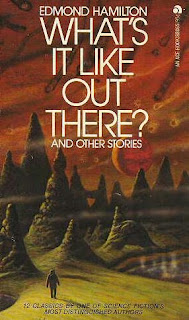Dr. Jerry Pournelle
Tomorrow, as I write these words, and earlier today, as I post them (thank you software glitches for the delay), the last Space Shuttle, Atlantis, will land for the final time. And then, for all practical purposes, it will be over.
Yes, I know we’ll still have an astronaut corps. They will still fly, on other nation’s launch systems, to the International Space Station. At least until it’s deorbited in a few years. But we won’t have the capability to send our people into space. We’ll simply be hitching rides on some else’s rockets. Like other countries used to do on ours. We will no longer be the wold’s leader in manned space exploration.
The government, through NASA, originally said that a replacement launch vehicle will be built and are continuing to say that. Let’s ignore for a moment that retiring your launch vehicles without having a replacement is akin to quitting your job without finding a new one or selling your car when you haven’t bought a replacement and are a few hundred miles from home, shall we? These are the same people who have been promising for decades to balance the federal budget and reduce the national debt. Given the negative progress they’ve made, I’m not holding out hope for a replacement vehicle from the government. Especially since our leerless feeder fearless leader last week said that it was time for private industry “to capture the flag.”
That’s almost certainly the only way we’ll ever get back into space. Through private industry. Our government won’t do it. The Chinese might. The Russians will probably keep something going not only to service the Station, but as a matter of pride. “The Americans beat us to the Moon, but we’re still in space while they’ve quit and gone home.”
If our government wants to implement a real stimulus package, perhaps our elected officials might like to consider this little fact: For every dollar spent on the space program, the government has received approximately $7 back in corporate and personal income tax due to the development of spinoff technology. For that type of increase in taxes, there would have to be more money circulating in the economy. There are several websites that list some of the things we enjoy today that came out of research and development in our space program. For starters try this one, and this one, and this one.
I know that we’ll send probes on various missions. At least for a while. And I know all the arguments for using robots and unmanned probes rather than people. And to a point, they’re valid. But there are some things robots can’t do. Do we quit when we get to the point that we’ve done all we can with robots? Or do we keep going?
There’s something in the human spirit that needs frontiers. Well, the healthy human spirit anyway. That’s why as a species, we’ve always been explorers.
Just the opposite in fact. We have only a limited amount of resources here. There are plenty of resources out in the inner solar system, in the asteroids and comets. If we are going to be good stewards of what we have, part of that stewardship could, and should, involve using the resources available off-planet.
We need to recapture that sense of Manifest Destiny. Only instead of taming the wilderness, we need to see space as the focus of that Manifest Destiny. Our future lies not only on Earth but in this solar system, and hopefully others one day. Cheesy Hollywood movies are probably not the way to instill that dream. It’s become pretty clear that in the area of space exploration, as in most areas, government isn’t the best choice either.
Private industry on the other hand…private industry can provide the motivation. I pray that it happens. There’s money to be made in space, just like in the 1500s and 1600s there was money to be made in the
I grew up dreaming of one day living in a spacefaring society. I’m afraid I’ll die doing the same.
Twenty years from now you will be more disappointed by the things you didn’t do than by the ones you did do. So throw off the bowlines. Sail away from the safe harbor. Explore. Dream. Discover.

